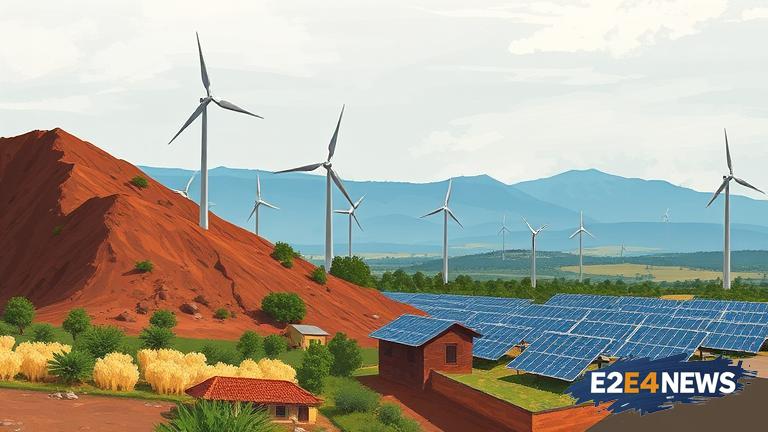The African continent is witnessing a significant shift towards renewable energy, driven by the need to reduce dependence on fossil fuels and mitigate the impacts of climate change. In recent years, several African countries have made notable strides in developing their renewable energy sectors, with a focus on solar and wind power. For instance, South Africa has launched several large-scale solar and wind farms, while Morocco has invested heavily in solar energy, with the goal of generating 52% of its electricity from renewables by 2030. Similarly, Kenya has made significant progress in geothermal energy, with the Olkaria Geothermal Complex being one of the largest in the world. The growth of renewable energy in Africa is being driven by a combination of factors, including declining technology costs, improved energy storage capabilities, and increasing demand for electricity. Many African countries are also recognizing the potential of renewable energy to drive economic growth, create jobs, and improve energy access. According to the International Renewable Energy Agency (IRENA), Africa has the potential to generate 22% of its electricity from solar energy by 2030. The African Union’s Agenda 2063 also emphasizes the importance of renewable energy in achieving the continent’s sustainable development goals. Despite the progress made, however, there are still significant challenges to be addressed, including the need for greater investment in energy infrastructure and the development of more effective policies to support the growth of renewable energy. Additionally, many African countries will need to develop their grid systems to accommodate the variable output of renewable energy sources. The role of international cooperation and partnerships will also be crucial in supporting the growth of renewable energy in Africa. Several countries, including the United States, China, and the European Union, have already launched initiatives to support the development of renewable energy in Africa. The private sector is also playing an increasingly important role, with several companies investing in renewable energy projects across the continent. As the demand for energy continues to grow in Africa, it is likely that renewable energy will play an increasingly important role in meeting this demand. In fact, a recent report by the African Development Bank suggests that renewable energy could account for up to 50% of Africa’s energy mix by 2050. Overall, the growth of renewable energy in Africa has the potential to drive economic growth, improve energy access, and reduce the continent’s dependence on fossil fuels. With the right policies and investments in place, Africa can unlock its vast renewable energy potential and achieve a more sustainable energy future. The future of renewable energy in Africa looks promising, with many countries committed to transitioning to a low-carbon economy. As the continent continues to grow and develop, it is likely that renewable energy will play an increasingly important role in meeting its energy needs.
